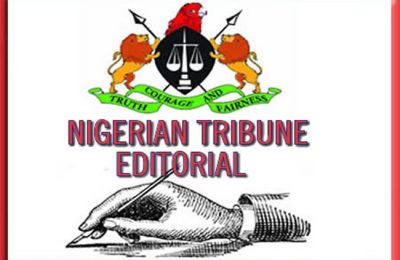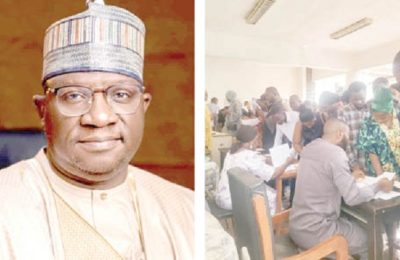

That anybody is looking forward to taking over from President Muhammadu Buhari when his tenure expires on May 29, 2023 must be the eighth wonder of the world unless those people are motivated by sincere desire to turn the tide in favour of Nigerians. The reason is not shielded in any mystery; for the almost eight years that President Buhari has superintended over the nation’s affairs, things have taken a turn for the worse. The country has become broken and the people battered. One cannot but wonder how we ended up with a president like Buhari. His sense of aloofness is so traumatizing and his attitude of indifference so gnawing that Nigerians can only pray that never again should we have the misfortune of such a misrule.
The outgoing president sinned against the nation in many ways, but for me five stand out.
One of the primary functions of a nation’s leader is creating a sense of belonging for all through fair treatment, but for President Buhari, the reverse is the case. Shortly after being entrusted with Nigeria’s presidency in 2015, in response to a question at the United States Institute of Peace on whether he would be fair to all regions irrespective of their support to him during the election, he had said that “The constituencies, for example, that gave me 97 percent cannot, in all honesty, be treated on some issues as constituencies that gave me five percent.” That has been his governance template for almost eight years. An example will suffice. While the country’s armed forces have been plummeting and shelling members of the Indigenous People of Biafra (IPOB) and the government has kept their leader, Nnamdi Kanu, in custody despite a court order to the contrary, arrested terrorists are being deradicalised, rehabilitated and reintegrated back into the society. Talk of fairness.

On the watch of President Buhari Nigeria has become more insecure. Although before his advent, Nigeria was not quite safe as terrorists held sway in some local government areas in Borno State, the case has now taken a turn for the worse. Bandits have become more daring; they are in Katsina State, Niger State, Kaduna State and Zamfara State wreaking havoc. They even had the temerity to attack Buhari’s advance team in Katsina State.
In March, an attack by bandits on an Abuja-Kaduna train left about 10 people dead. Bandits have become so powerful that state governments now make budgetary provision for ransom to rescue their abducted citizens. A Catholic church was attacked in Owo, Ondo State in June 2022, leaving over 40 people dead. Over 50 offices of the Independent National Electoral Commission (INEC) have been attacked in the past four years. Kidnapping has become a byword in Nigeria as kidnappers continue to lay siege to many roads across the length and breadth of the country. Now, if a President cannot secure his citizens, hasn’t he run afoul of Section 14(2)(b) of the 1999 Nigerian Constitution (as amended) which states that security and welfare of the people shall be the primary purpose of government?
President Buhari will be remembered long after leaving office as the country’s leader with the most unsavory appetite for debts. At the end of June 2015, Nigeria’s debt was N12trillion but as of September 2022, it had risen to N44.06 trillion. According to the Director General of the Debt Management Office, Patience Oniha, by the time the N22.7trillion CBN loan to the government under ‘Ways and Means’ as well as fresh request for loan in the new year are factored into the debts, the figure would rise to N77trillion. This means by the time Buhari leaves office, he will have grown the nation’s debt by over 500 percent in just eight years. Perhaps we would have been comforted by the unprecedented debt increase had there been a corresponding level of development. But which projects were financed with the gargantuan debt? Which structures can we point to as justification for the ever rising debt? Where are the factories built with the borrowed money? Where are the new jobs created? Where are the hospitals built? Where are the new airports? Where are the new roads? Where has all the money gone? Most of the borrowed trillions went into running the government; paying salaries and allowances. This is not only tragic, it is extremely heartrending.

Under President Buhari the nation’s unemployment rate hit the roof. According to data from the National Bureau of Statistics, unemployment rate was 8.19 percent in Q2 of 2015, from where it moved to 9.9 percent in Q3 2015 and 10.44 percent in Q4 2015. In Q1 2016, it was 12.09; Q2 2016, it was 13.32 percent, rose to 13.88 percent in Q3 2016, closing the year at 14.23 percent in Q4.

In Q1 2017, unemployment rate rose to 14.44 percent, moved to 16.18 percent in Q2, rose to 18.8 percent in Q3 and 21.83 in Q4. In the first quarter of 2018, Nigeria’s unemployment rate was 21.8 percent. In Q2, it was 22.73 percent and 23.13 percent in Q3. The NBS did not publish unemployment rate for six quarters between the last quarter of 2018 and the first quarter of 2020. The unemployment rate for Q2 2020 was 27.1 percent and 33.28 percent in Q4 2020, the most current one. With the unemployment rate at 33.3 percent and the population at over 200million, the number of unemployed Nigerians is over 66million. That is more than the population of Ghana (31.07million), Cote D’Ivoire (26.38million) and Togo (8.279million) put together. So, how will young Nigerians not seek out a future away from home if their country does not provide them with opportunities to earn a living?
On President Buhari’s watch Nigeria’s economy has gone to the dogs. Before his ascension, Nigeria was one of the three fastest growing economies in the world. Before President Buhari got into the saddle, Nigeria was the largest economy in Africa. Now, all of that has changed. On Buhari’s watch, inflation rate is over 21 per cent. On his watch, though the country pays close to N6trillion to subsidise PMS, Nigerians still pay, in some cases, over N300 per litre for the product.
Under Buhari, Nigerians have become poorer, more hopeless and unprecedentedly helpless. For a leader elected to improve the fortune of the people, this let down is unpardonable.
ALSO READ FROM NIGERIAN TRIBUNE








